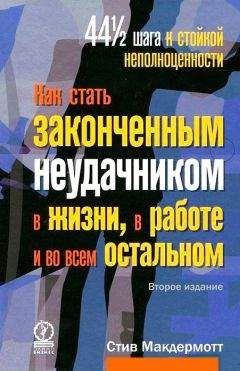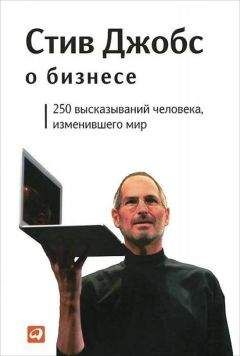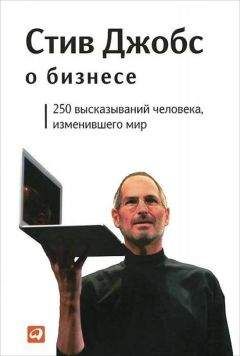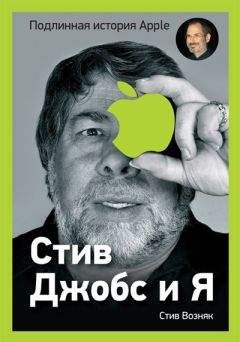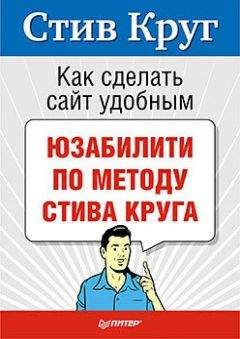Михаил Сарапов - Английский для смелых. Истории о духах и привидениях / Great Ghost Stories
At that point his astuteness and composure failed him (тогда то: «в этот момент» его прозорливость и хладнокровие его и подвели). He opened a deposit account at a local bank with four more fifty-pound notes (он открыл депозит в местном банке на еще четыре пятидесятифунтовых кредитных билета; deposit account – депозит, депозитный счет; сберегательный счет), instead of being patient, and increasing his balance at the savings bank pound by pound (вместо того чтобы набраться терпения и увеличивать свои счета в сберегательном банке фунт за фунтом; balance – зд.: счет в банке), and he got uneasy about that which he had buried deep enough for security in the back garden (и он стал нервничать по поводу того, что он и так в целях безопасности достаточно глубоко зарыл на заднем дворике; uneasy – беспокойный, тревожный; security – безопасность, защищенность; чувство безопасности). Thinking to render himself safer in this regard (думая обезопаситься еще больше в этом отношении; to render – отдавать, платить; приводить в какое-либо состояние), he ordered a cartload of slag and stone fragments (он заказал телегу шлака и камней; fragment – обломок; осколок), and with the help of his lodger employed the summer evenings when work was over in building a sort of rockery over the spot (и с помощью своего жильца проводил летние вечера после работы: «когда работа бывала закончена», строя над этим местом нечто вроде декоративных каменных горок; to employ – использовать, занимать; rockery = rock garden – альпинарий, сад с декоративными каменными горками). Then came the chance circumstance which really set match to this dangerous train (затем подвернулось то случайное обстоятельство, которое и послужило запалом для этой взрывоопасной башни лжи: «которое в самом деле поднесло спичку к этой опасной последовательности событий»; train – поезд, состав; цепь, ряд, последовательность /событий/). There was a fire in the lost luggage office at King’s Cross Station (случился пожар в камере хранения потерянного багажа на вокзале Кингз-Кросс; office – зд.: подсобное помещение) (from which he ought to have claimed his mother’s property (откуда ему следовало бы забрать вещи его матери; to claim – требовать; заявлять о своих правах; property – имущество)) and one of the two boxes was partially burned (и один из двух сундуков частично сгорел). The company was liable for compensation (компания была обязана выплатить компенсацию; liable – обязанный), and his mother’s name on her linen (а то, что на белье его матери было ее имя), and a letter with the Sheffield address on it (и письмо, адресованное в Шеффилд: «с шеффилдским адресом на нем»), led to the arrival of a purely official and formal notice (привело к тому, что пришло чисто формальное извещение; arrival – прибытие; official – формальный; связанный с исполнением служебных обязанностей; formal – формальный, выполненный по установленной форме), stating that the company were prepared to consider claims (в котором сообщалось, что компания готова покрыть ущерб: «готова рассмотреть иски»). It was directed to Mrs Linkworth, and Charles Linkworth’s wife received and read it (оно было адресовано миссис Линкворт, и жена Чарльза Линкворта получила его и прочитала).
At that point his astuteness and composure failed him. He opened a deposit account at a local bank with four more fifty-pound notes, instead of being patient, and increasing his balance at the savings bank pound by pound, and he got uneasy about that which he had buried deep enough for security in the back garden. Thinking to render himself safer in this regard, he ordered a cartload of slag and stone fragments, and with the help of his lodger employed the summer evenings when work was over in building a sort of rockery over the spot. Then came the chance circumstance which really set match to this dangerous train. There was a fire in the lost luggage office at King’s Cross Station (from which he ought to have claimed his mother’s property) and one of the two boxes was partially burned. The company was liable for compensation, and his mother’s name on her linen, and a letter with the Sheffield address on it, led to the arrival of a purely official and formal notice, stating that the company were prepared to consider claims. It was directed to Mrs Linkworth, and Charles Linkworth’s wife received and read it.
It seemed a sufficiently harmless document (документ казался достаточно безобидным: «безвредным»), but it was endorsed with his death-warrant (но это была расписка в получении его смертного приговора; to endorse – расписываться на обороте документа, подтверждая получение). For he could give no explanation at all of the fact of the boxes still lying at King’s Cross Station (так как он не мог дать абсолютно никакого объяснения тому факту, что сундуки все еще лежали на вокзале Кингз-Кросс; at all – совсем, полностью), beyond suggesting that some accident had happened to his mother (кроме предположения, что с его матерью произошел какой-то несчастный случай). Clearly he had to put the matter in the hands of the police, with a view to tracing her movements (очевидно, он должен был передать это дело в руки полиции с тем, чтобы она проследила ее перемещения), and if it proved that she was dead, claiming her property (а если бы оказалось, что она мертва, заявить о своих правах на ее деньги), which she had already drawn out of the bank (каковые она уже сняла в банке). Such at least was the course urged on him by his wife and lodger (по крайней мере, такой образ действий настоятельно рекомендовали ему его жена и постоялец; course – курс, направление; линия поведения, образ действия; to urge – гнать, подгонять; убеждать, советовать; настаивать), in whose presence the communication from the railway officials was read out (в чьем присутствии было прочитано сообщение от железнодорожной компании: «от железнодорожных чиновников»), and it was impossible to refuse to take it (и было невозможно отказаться ему следовать; to take – зд.: принять). Then the silent, uncreaking machinery of justice, characteristic of England, began to move forward (тогда сдвинулась /с места и заскользила/ вперед бесшумная машина правосудия, характерная для Англии; to creak – скрипеть; uncreaking – работающая без скрипа; to move – двигаться, передвигаться). Quiet men lounged about Smith Street (неприметные люди слонялись по Смит-Стрит; quiet – тихий, бесшумный; скромный, неброский), visited banks (посещали банки), observed the supposed increase in trade (наблюдали за предположительно оживившейся торговлей; increase – рост, увеличение), and from a house near by looked into the garden where ferns were already flourishing on the rockery (а из дома по соседству заглянули в сад, где на альпинарии уже разросся папоротник; to flourish – пышно расти, разрастаться). Then came the arrest and the trial, which did not last very long (потом последовали арест и суд, который длился не очень долго), and on a certain Saturday night the verdict (а одним субботним вечером последовал вердикт; certain – точный, определенный; некий, некоторый). Smart women in large hats had made the court bright with colour (здание суда оживляли нарядные женщины в больших ярких шляпках: «элегантные женщины в больших шляпах делали суд ярким от цвета»; smart – сильный, резкий; нарядный; модный; элегантный), and in all the crowd there was not one who felt any sympathy with the young athletic-looking man who was condemned (и во всей толпе не нашлось ни одного, кто чувствовал бы сострадание к молодому человеку атлетического сложения, которому был вынесен приговор; to look – зд.: выглядеть; to condemn – осуждать, порицать; приговаривать, выносить приговор). Many of the audience were elderly and respectable mothers (многие из аудитории были уважаемые матери почтенного возраста; elderly – пожилой, почтенный), and the crime had been an outrage on motherhood (а преступление было надругательством над материнством; outrage – грубое нарушение /закона, прав, приличий/; произвол; акт насилия), and they listened to the unfolding of the flawless evidence with strong approval (и они с огромным одобрением выслушивали неопровержимые свидетельские показания; unfolding – разворачивание; flawless – без изъяна, безупречный; strong – сильный, значительный; крайний, чрезвычайный). They thrilled a little when the judge put on the awful and ludicrous little black cap (они ощутили легкую дрожь, когда судья надел свою ужасную и смехотворную черную шапочку; to thrill – испытывать трепет, дрожь), and spoke the sentence appointed by God (и зачитал назначенный Богом приговор; to speak – сказать; произнести).
It seemed a sufficiently harmless document, but it was endorsed with his death-warrant. For he could give no explanation at all of the fact of the boxes still lying at King’s Cross Station, beyond suggesting that some accident had happened to his mother. Clearly he had to put the matter in the hands of the police, with a view to tracing her movements, and if it proved that she was dead, claiming her property, which she had already drawn out of the bank. Such at least was the course urged on him by his wife and lodger, in whose presence the communication from the railway officials was read out, and it was impossible to refuse to take it. Then the silent, uncreaking machinery of justice, characteristic of England, began to move forward. Quiet men lounged about Smith Street, visited banks, observed the supposed increase in trade, and from a house near by looked into the garden where ferns were already flourishing on the rockery. Then came the arrest and the trial, which did not last very long, and on a certain Saturday night the verdict. Smart women in large hats had made the court bright with colour, and in all the crowd there was not one who felt any sympathy with the young athletic-looking man who was condemned. Many of the audience were elderly and respectable mothers, and the crime had been an outrage on motherhood, and they listened to the unfolding of the flawless evidence with strong approval. They thrilled a little when the judge put on the awful and ludicrous little black cap, and spoke the sentence appointed by God.
Linkworth went to pay the penalty for the atrocious deed (Линкворт отправился расплачиваться за /свое/ зверское/ужасное злодеяние; to pay – платить; penalty – наказание; взыскание; штраф; to pay a penalty – расплачиваться; deed – действие, деяние), which no one who had heard the evidence could possibly doubt that he had done with the same indifference (которое, как не мог усомниться никто из тех, кто слышал свидетельские показания, он совершил с тем же равнодушием; evidence – ясность, наглядность, очевидность; /юр./ свидетельское показание) as had marked his entire demeanour since he knew his appeal had failed (что отмечало все его поведение, с тех пор как он узнал, что его прошение о помиловании отвергнуто; to fail – зд.: потерпеть неудачу; не иметь успеха). The prison chaplain who had attended him had done his utmost to get him to confess (тюремный священник, который посещал его, сделал все от него зависящее, чтобы вынудить его признать свою вину; utmost – /сущ./ самое большое, всe возможное; to confess – признавать/ся/; сознаваться; исповедоваться), but his efforts had been quite ineffectual (но его старания оказались совершенно безрезультатными), and to the last he asserted, though without protestation, his innocence (и он ему: «последнему» заявил о своей невиновности, хотя и не пытался протестовать). On a bright September morning (ясным сентябрьским утром), when the sun shone warm on the terrible little procession (когда солнце согревало своими теплыми лучами ужасную маленькую процессию; to shine – светить, сиять, озарять; warm – теплый) that crossed the prison yard to the shed where was erected the apparatus of death (что пересекла тюремный двор /по направлению/ к сараю, где воздвигли аппарат смерти), justice was done (свершилось правосудие), and Dr Teesdale was satisfied that life was immediately extinct (и доктор Тисдейл удостоверился, что смерть была мгновенной: «что жизнь была немедленно угасшей»; to satisfy – удовлетворять; убеждать; доказывать). He had been present on the scaffold (он присутствовал на эшафоте), had watched the bolt drawn (видел, как извлекли фиксатор; bolt – засов, задвижка; to draw – тянуть), and the hooded and pinioned figure drop into the pit (и фигура в капюшоне и со связанными руками обрушилась вниз; to pinion – связывать /руки/; to drop – капать; падать; валиться; pit – яма, углубление). He had heard the chunk and creak of the rope as the sudden weight came on to it (он услышал, как веревка всхлипнула и скрипнула под внезапным весом; chunk – лязганье, урчание, глухой всхлипывающий звук; to come on – наступать, надвигаться, обрушиваться), and looking down he had seen the queer twitchings of the hanged body (и, посмотрев вниз, увидел странные конвульсии повешенного; to twitch – дергаться, конвульсивно сокращаться; body – тело). They had lasted but a second or two (длились они всего секунду—другую); the execution had been perfectly satisfactory (казнь прошла абсолютно безупречно; perfectly – совершенно, в полной мере; satisfactory – удовлетворительный).
